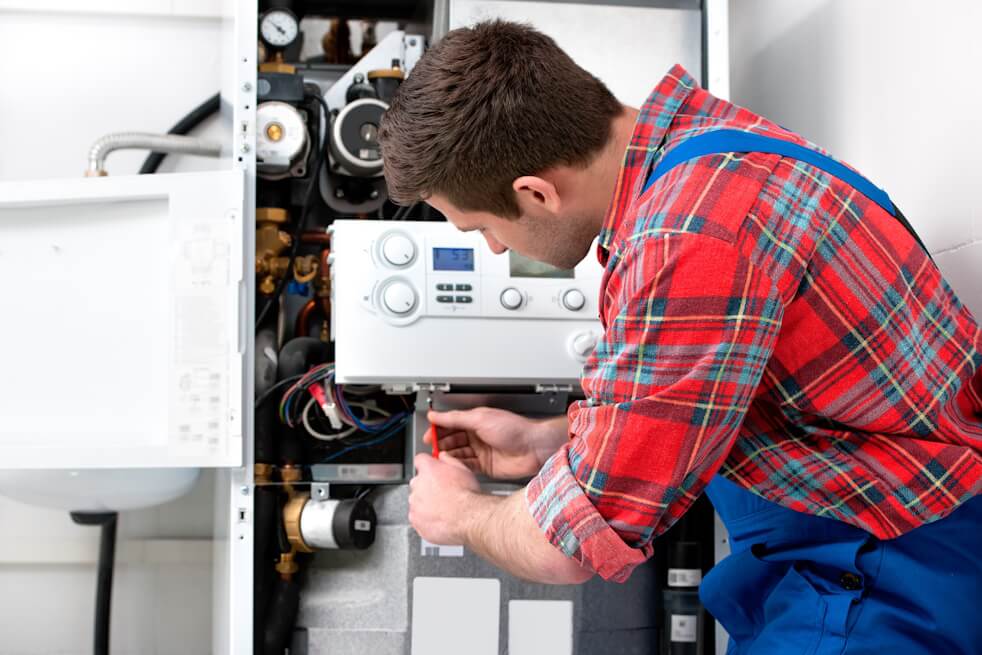Get to Know Your HVAC System to Ensure High-Quality Performance This Winter
You know your heating and cooling system keeps you comfortable. A noise clicks on from the basement, and you feel warm and cool air when you need it. Otherwise, these systems are much like the engines of our cars: it’s better to leave well enough alone.
However, with a little bit of knowledge, you can have far more control over your energy bill, the quality of your HVAC system, and who you partner with for expert service.
The following six facts will put you in a position to better utilize this valuable system in your home, as well as help you find the right team for heating system repair when you need them.
6 Facts About Your Heating System, and What They Mean for You
There’s nothing worse than having little to no knowledge about an essential aspect of your home. This leaves you vulnerable to unnecessary expenditures and disappointing service calls.
Use these facts to your advantage, and you’ll be able to sleep at night knowing that you’re now able to make key decisions about a critical part of your home
- Fact #1: The typical heating system lasts 10 to 20 years, depending on your system. According to Trane, one of the leading manufacturers of high-performing HVAC systems, your heating pump may last 10 to 12 years, while a furnace’s life expectancy is 15 to 20 years.
-
Fact #2: If your heating system is getting closer to that 10 to 20 year mark (depending on whether you have a heat pump or furnace), your system is expending more energy than it should, which also means higher energy bills.
ENERGY STAR’s article on energy efficiency for your heating and cooling system recommends considering a replacement after the ten-year mark. If so, you will benefit from key savings with new energy-efficient technology. If you continue with an inefficient system, you may end up spending more on repairs and maintenance. That money could have gone to a brand-new system that delivers energy savings right away.
- Fact #3: If your system isn’t old enough to consider replacement, it may be that optimizations need to occur to ensure your HVAC system is working at its best. In the same article, ENERGY STAR recommends four key actions to ensure your system functions properly and provides the comfort and savings you need. They recommend insulation and sealing, changing your air filter, and investing in a smart thermostat. Read on to learn more about each of these important and beneficial tasks in the remaining facts.
- Fact #4: Insulation and sealing will improve the performance of your system by preventing leaks. ENERGY STAR explains that you can improve your system by up to 20%. Do your research on a well-reviewed, local business for heating system repair, and you can secure this valuable service.
- Fact #5: Changing your air filter regularly is not only a wise move for your health, but this critical action will also increase your system’s efficiency. Dirt, debris, pet hair, and more will prevent your system’s air from passing through the filter, leading to less efficiency. Additionally, because your filter protects you by filtering out virus particles, allergens, and even odors, a dirty filter will cause you to breathe in all those contaminants. A reputable HVAC service team will likely recommend replacing your filter every 3 months at a minimum.
- Fact #6: Along with insulation, sealing, and filter cleaning, a smart thermostat ensures that your system doesn’t expend unnecessary energy during the times of day when you’re not at home or you’re sleeping. Today’s thermostats can keep track of your schedule based on your smartphone activity, change temperatures based on local conditions, and provide key data on the health of your system, as well as its efficiency.
One Final Fact: Choosing a Technician to Service Your Heating System
The facts about your heating and cooling system will empower you to make the best decisions for your comfort and savings. While you may not be able to handle all of these tasks yourself, you’ll feel confident when you call a heating service repair team to your home. You’ll know exactly what to have them do to increase your system’s performance.
A reputable technician will listen to your concerns, and they will likely offer suggestions that echo the recommendations from ENERGY STAR and Trane. Your technician may also suggest a service agreement that includes two “clean and check” tune-ups per year. These service agreements save you money in the long run because they provide preventative maintenance to protect you from more costly repairs.
Learn more about how leading HVAC technicians benefit your heating system.




